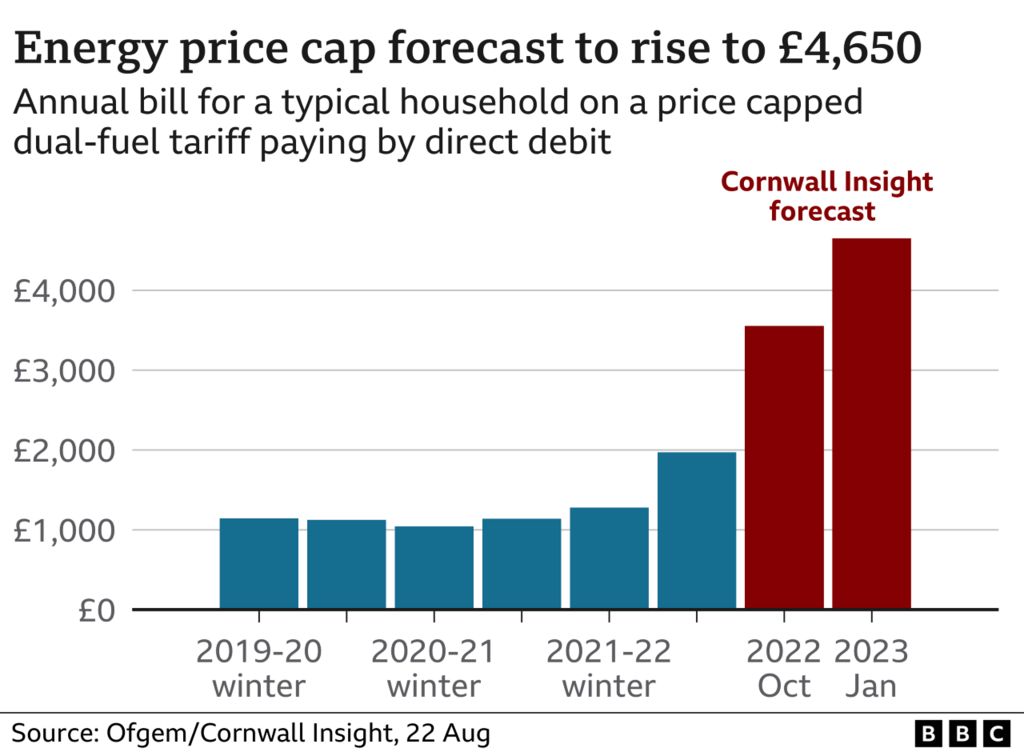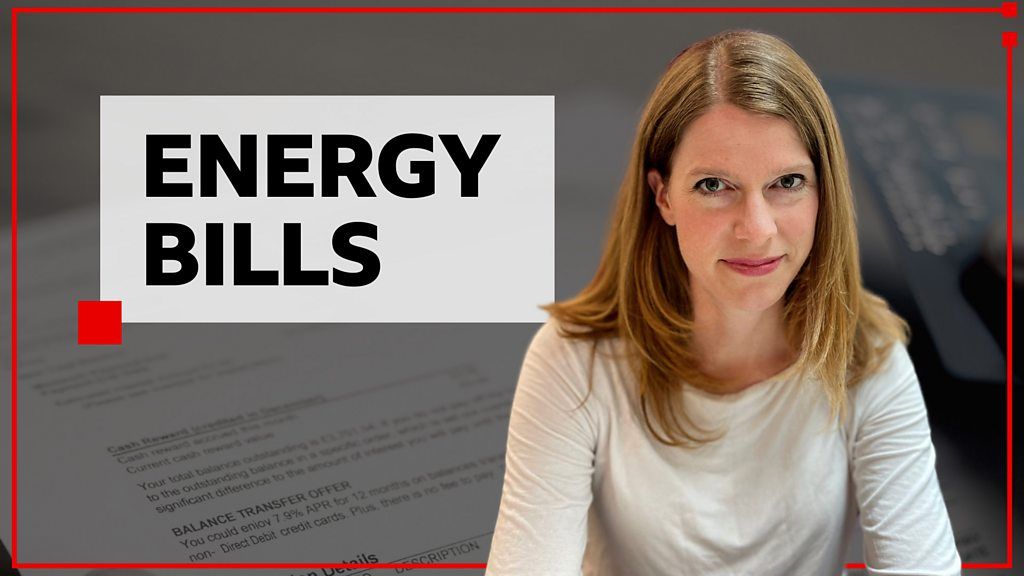 Getty Images
Getty ImagesMiddle earners, as well as low earners, are likely to need government help to pay their energy bills this winter, Chancellor Nadhim Zahawi has warned.
The energy regulator hiked the price cap on household bills by 80% on Friday, meaning the average bill will rise to £3,549 a year from October.
Speaking to the Telegraph, Mr Zahawi said even those earning £45,000 a year may need support.
He said the Treasury was exploring “all the options” to help households.
The rise in the energy price cap – which is the maximum amount that suppliers can charge households per unit of energy – means millions of households will see their annual bills rise from about £1,971 currently.
Typical prepayment meter customers will also see their bills rise to £3,608.
Charities and experts have warned that the rise will have a devastating impact on households and that lives will be at risk without government intervention.
Both Liz Truss and Rishi Sunak, one of whom will be announced as the next prime minister on 5 September, have pledged further support, though neither has given details.
The government has already announced that all households will get a £400 rebate on energy bills, with low income and vulnerable households receiving an additional £650.
In his interview with the Telegraph, Mr Zahawi said he was also concerned about those who are not on benefits.
“If you are a senior nurse or a senior teacher on £45,000 a year, you’re having your energy bills go up by 80% and will probably rise even higher in the new year – it’s really hard.
“If you’re a pensioner, it’s really hard. So Universal Credit is a really effective way of targeting, but I’m looking at what else we can do to make sure we help those who really need the help.”

How much are energy prices rising by?
- The price cap, set by the regulator, Ofgem, is rising by 80% in October
- The price of electricity will rise on average from 28p per kilowatt hour (kWh) to 52p and gas will go up from 7p to 15p per kWh
- A typical annual energy bill paid by direct debit is currently £1,971. In October, that will rise to £3,549
- Prepayment meter customers will pay an extra £59 a year from October, taking the new typical bill on a prepayment meter to £3,608

Mr Zahawi said the options being drawn up for the next prime minister to consider included an increase in benefits and a loan scheme for energy suppliers to stop them having to pass costs on to consumers.
He said a price cap freeze had not been ruled out, though he expressed concern that the measure would also benefit households that could afford to pay higher energy costs.
Mr Zahawi added that a number of measures to help small businesses, including temporary reductions to VAT, business rates, or green levies, were being considered, saying a failure to help business would leave a “longer-term scarring effect on the economy”.
Labour and the Liberal Democrats have criticised the government for failing to respond to the growing crisis.
Labour says its own plan to freeze energy prices this winter – paid for in part by a windfall tax on energy companies – would save someone on the minimum wage more than £40 a week.
Shadow Chancellor Rachel Reeves said the energy crisis had spiralled out of control and accused the government of being willing to leave “millions of families out in the cold”.
Lib Dem leader Ed Davey said the energy price cap rise was “nothing short of a catastrophe for millions of families and pensioners”.

Mr Zahawi also split with cabinet colleagues who have so far resisted suggestions that households should be encouraged to reduce their energy usage.
A spokesperson for Prime Minister Boris Jonson said this week that choices about energy consumption remained “decisions for individuals”.
Asked about the issue, Mr Zahawi said: “The reality is that we should all look at our energy consumption.”
He said the country was in a “national economic emergency [that] could go on for 18 months, two years”.
“Putin has worked out that he can use energy as a tool to hit back at us for the help we are putting into Ukraine. We have to be resilient,” he said.
“And we’re going to need to send a message back to Putin that this is not going to soften our resolve in helping Ukraine.”
This video can not be played
To play this video you need to enable JavaScript in your browser.

- ‘A NATION OF CEREAL LOVERS’: How do you choose the healthiest option?
- AIR FRYER REVOLUTION: How to get the most out of your kitchen gadget

-
-
17 hours ago

-


